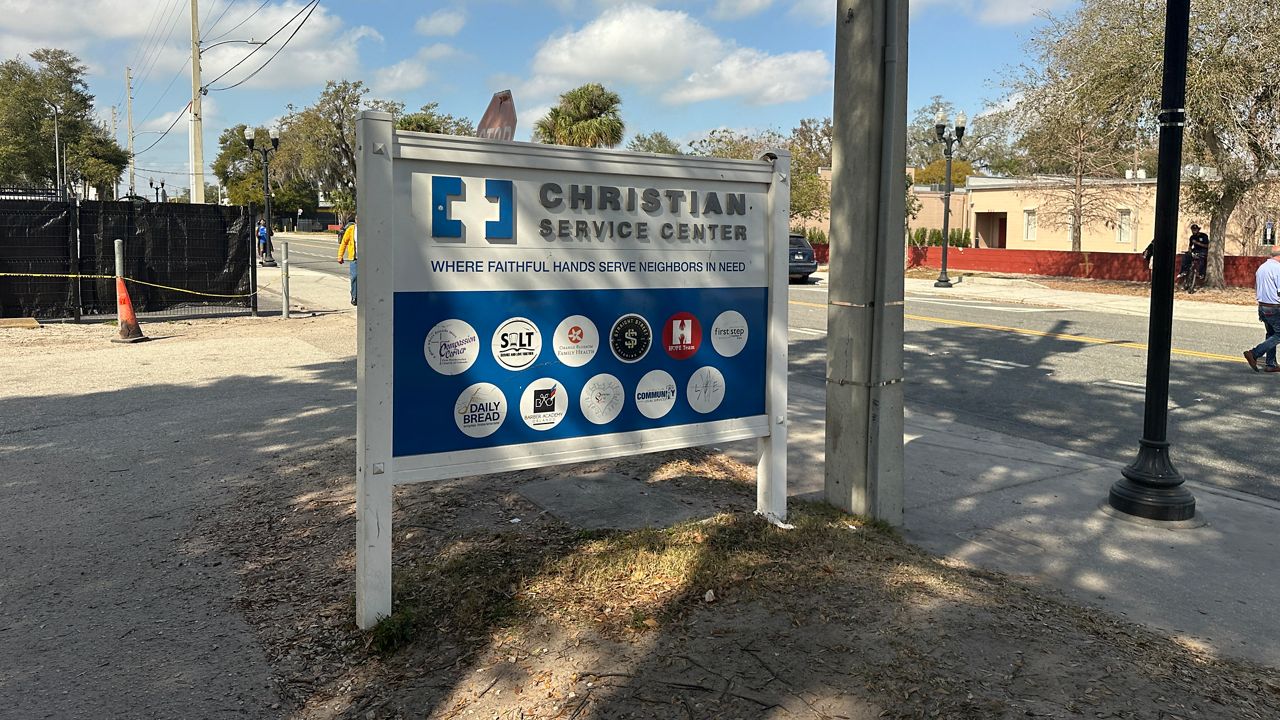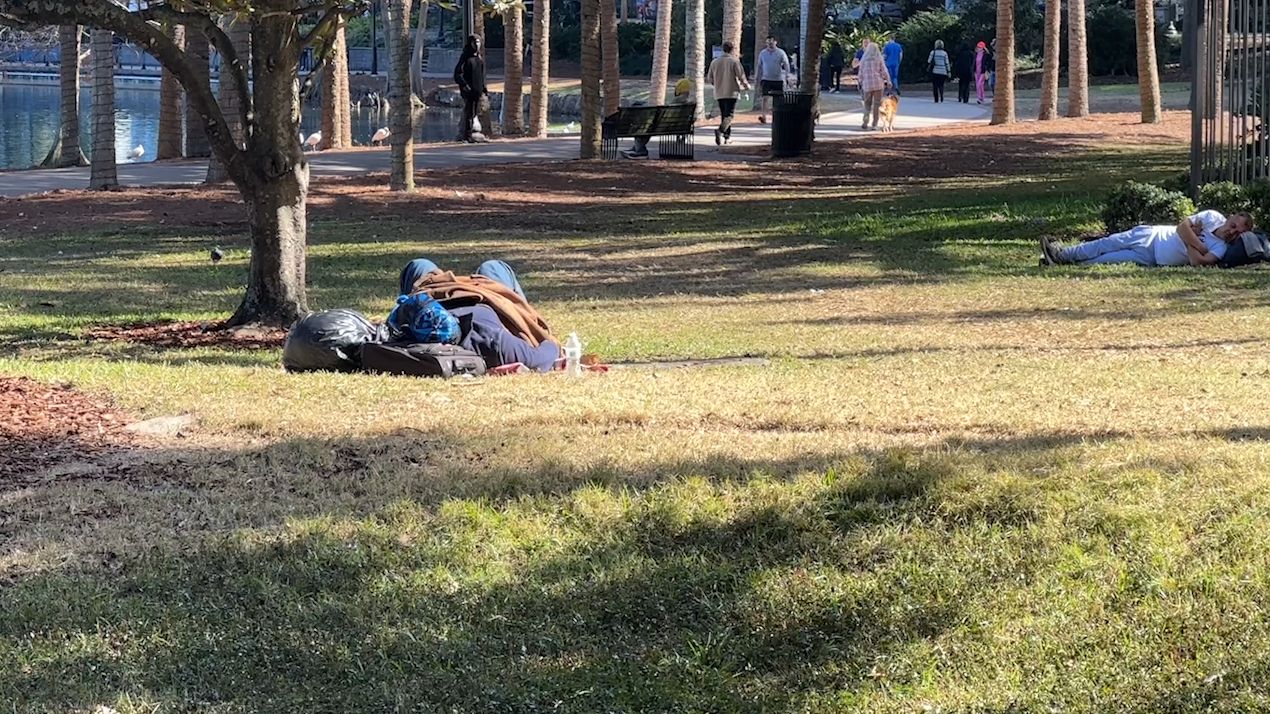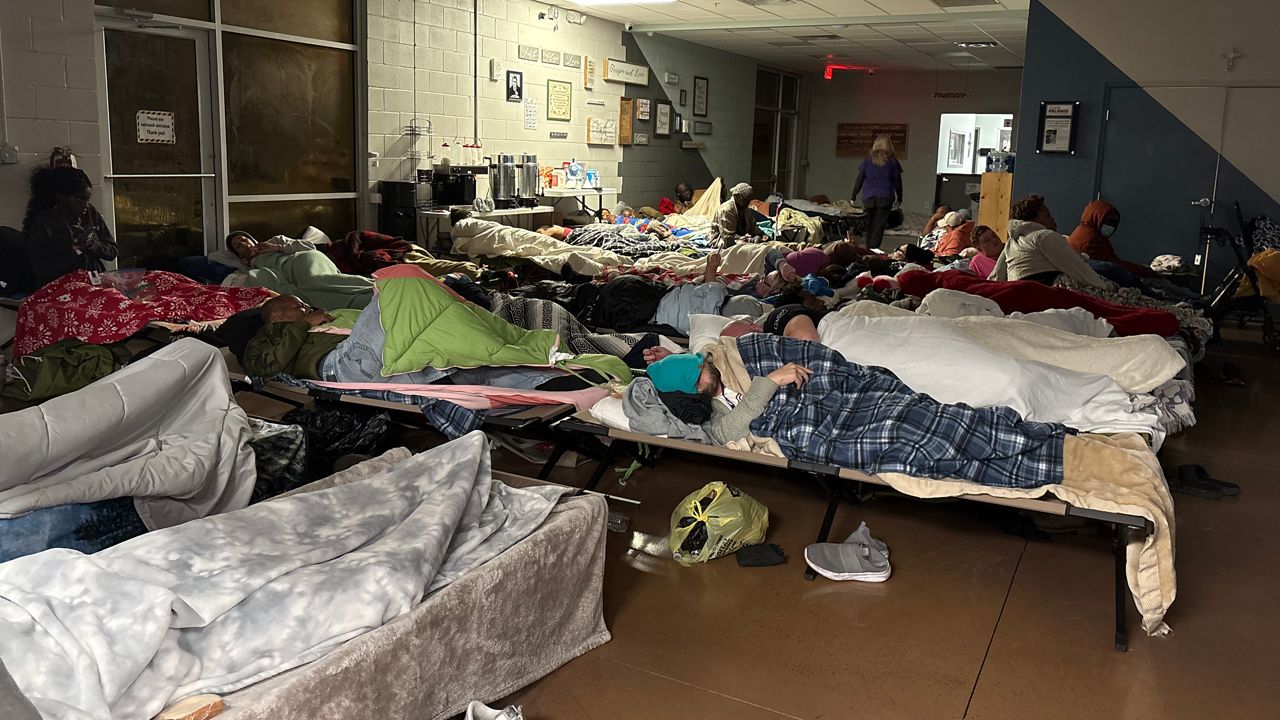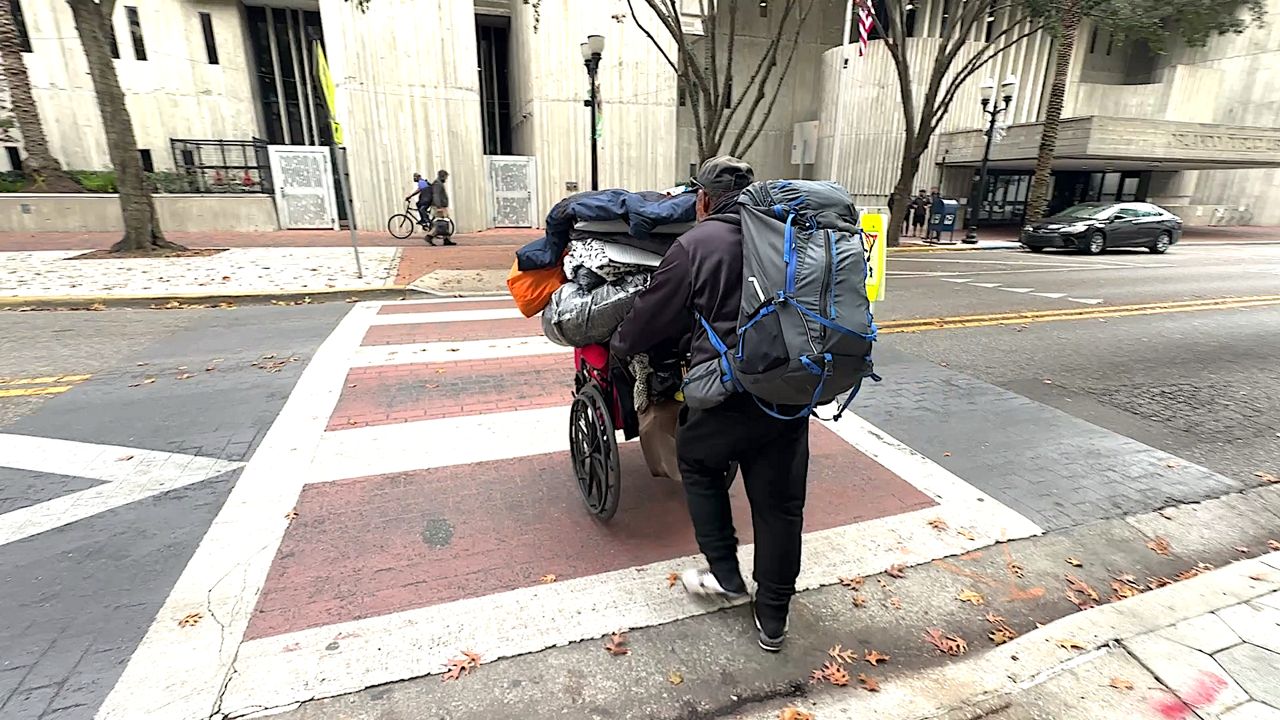ORLANDO, Fla. — Homeless: it’s a simple word, but what does it really mean? For 27-year-old Derek Shaye, who spent several months homeless in Orlando before finding his way into the local shelter system, that’s not an easy question to answer.
What You Need To Know
- Research looking at addressing homelessness in Central Florida
- Stigma is just one aspect of Dr. Rajni Shankar-Brown’s research
- Derek Shaye lived on the streets for several months before entering shelter system
- Shaye says the experience taught him many stereotypes about homeless people are untrue
“It’s hard. It tests you. And it makes you really examine for yourself: Who are you without other people?” Shaye said. “Who are you when you stand on your own?”
Shaye, who’s in the process of changing his legal name, said he came down to Orlando from New Jersey about three years ago, leaving behind what he described as an unhealthy family situation. He’s struggled with anxiety and depression, which got worse after his older brother died in the Virginia Tech mass shooting in 2007.
“I felt like I lost one of the only few people in my life that I could really be myself around, [who] I could really talk to,” Shaye said. “It made me feel more alone than I ever felt before.”
Before starting to receive help from area shelters, Shaye said he spent several months living on the streets. The experience taught him many of the stereotypes he’d previously believed about homeless people weren’t true.
“Everyone’s experience is different with homelessness, with being looked at as unwanted or just unspecified, like we’re some sort of other category,” Shaye said.
That stigma is just one aspect of Dr. Rajni Shankar-Brown’s research into poverty and homelessness at Stetson University. As the university’s endowed chair of social justice education and an executive board member of the National Coalition for the Homeless, Shankar-Brown has spent her life focused on the impact of poverty and homelessness on children and young people. Specifically, she looks at ways to enhance equity in our education system.
“When we talk about poverty and homelessness, it’s not fixing people as much as it is fixing systems that are perpetuating these issues, and placing children and youth in poverty, in homeless situations,” Shankar-Brown said.
At Stetson University Shankar-Brown founded the Hatters University Scholars, a multilayered mentoring program for local youth experiencing poverty and homeless situations. Shankar-Brown’s university students mentor the students – and in turn, the youth they work with mentor them, she said.
“The children and youth are tremendous teachers," Shankar-Brown said. "They’re able to share their own lived experiences.”
The Hatters University Scholars program, which partners with local K-12 schools to bring youth to campus, is not about showing underserved youth pity or sympathy. Rather, it’s all about breaking stereotypes, practicing empathy and pushing young people to meet their maximum potential, Shankar-Brown said.
Elementary-age children, many of whom have never had a family member graduate high school, get to experience a college campus. Older students learn about ways to grow nutritious food, manage their finances and plan for the future. It’s a program to help youth develop their sense of agency, Shankar-Brown said.
“We have our children who are in homeless situations, living in poverty, and we are developing their leadership skills,” Shankar-Brown said. “You have skill sets, and you can use those as well to better our world.”
Back in Orlando, Shaye is working on developing his own skills as a participant in The Salvation Army Orlando Area Command’s transitional program for formerly homeless men. There, he and other participants are assigned tasks to teach them life skills, according to public relations and marketing manager Majorie Pierre. In return, the men receive assistance, including case management and help with finding permanent housing.
Every day, Shaye helps prep and serve meals to those who need it at the men’s shelter. He said he thinks policymakers who make key decisions about ways to address poverty and homelessness might learn a lot by spending just one day in the shoes of the men staying there.
“Maybe if they took just a day – a day to live in a shelter, to sleep in that bed, to get served that food, just like anybody else,” Shaye said. “Just living there for themselves and picturing themselves in that situation for a day, and then a week, a month, a year.”
Shankar-Brown agrees that it’s crucial to lift up the voices of those who have experienced homelessness firsthand – especially now, as COVID-19 exacerbates a pre-existing homelessness crisis in the United States. She said often, those who make policies and influence structures don't have a deep understanding of poverty or lived experience with homelessness.
“It’s so important that we are allowing those who have those experiences to have agency, to help with the change that is truly needed in our world,” Shankar-Brown said.
Already, housing and homeless services that were under-resourced before the pandemic began have struggled to keep up with demand during COVID-19. And for several reasons, the data on how many people are homeless in the U.S. is “severely underestimated,” Shankar-Brown said.
One big reason for that is fear.
“Most of the students I work with who are in homeless situations do not feel comfortable publicly disclosing that … because of the stigma, the stereotypes, they don't want people knowing,” Shankar-Brown said.
Senate Majority Leader Mitch McConnell (R-KY) on Sunday said congressional leaders had finally agreed on a second COVID-19 stimulus package, which includes an extension of the federal eviction moratorium. The package, which is expected to pass, would extend the federal eviction moratorium until Jan. 31.
Housing advocates say that’s not enough to adequately protect the up to 40 million renters who could lose their homes upon the moratorium’s expiration – but it’s a start.
“I don’t think people quite realize the magnitude of what [would] happen,” Shankar-Brown said.
Molly Duerig is a Report for America corps member who is covering affordable housing for Spectrum News 13. Report for America is a nonprofit national service program that places journalists in local newsrooms to report on undercovered issues.









